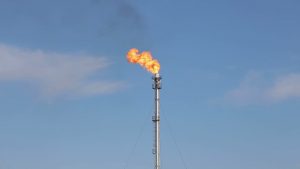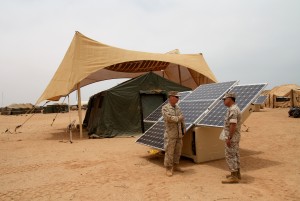19 item(s) were returned.
Assistant Professor, EECS
Washington State University
Cybersecurity threats to the electric grid are no longer hypothetical. While attacks impacting grid operations have only been reported in Ukraine, DHS recently identified intrusions into the U.S. grid. Fortunately, substantial progress has been made in recent years to protect the grid. While the North American Energy Reliability Corporation (NERC) has implemented bulk grid cybersecurity requirements for the past decade, state utility commissions are increasingly defining requirements for low-voltage distribution grids. Furthermore, NERC-led initiatives, such as national response exercises (GridEX) and information sharing programs (E-ISAC) help ensure utilities are prepared to respond to similar events. At the federal level, the… [more]
View InsightRanking Member - Subcommittee on Public Lands and Environmental Regulations
U.S. House of Representatives
Donald Trump claims to have an “America First” energy plan. His administration’s actions over the past 10 months have made it clear that what he truly puts first are the interests of oil, gas and coal executives. Everyday Americans and our iconic American landscapes come last, if he considers them at all. Republicans used to label their policies “energy independence” and now call it “energy dominance,” but it looks more like the ransacking of our public lands and the fleecing of American taxpayers. The public wants a smarter way forward – an energy strategy that prioritizes renewables, takes climate change… [more]
View InsightAccording to the Pentagon, the military’s reliance on fossil fuels – and the vulnerabilities that accompany that reliance – could potentially pose a major national security issue. This potential threat has invigorated the Department of Defense (DoD) to lead on the issue by rebalancing energy security throughout the military. Satisfying growing concern for both operational energy and installation energy looks to be a challenge in the years to come. Pentagon planners are responding accordingly by recognizing the critical role of energy in military operations and the potential vulnerabilities. The overarching mission is the preservation of operational capabilities at home and… [more]
View InsightThe Fuse (www.energyfuse.org) is a trusted online resource that presents timely written analysis, visual data, infographics, interviews, videos, and other content on a wide range of issues related to oil markets, alternative fuel vehicles, domestic energy policy and national security.
View InsightUnited States Senator, State of Alaska
Chairman, Senate Energy and Natural Resources Committee
Some of America’s oldest allies are heavily reliant on unappealing sources of oil and our nation’s resource abundance places us in a position to render vital assistance. The International Energy Agency estimates that in 2012 the United Kingdom depended on Russia for 12 percent of its crude oil imports, a relatively modest proportion when compared to the Netherlands (31 percent) and Poland (96 percent). All told, Russian oil accounts for approximately one-third of European Union imports. Meanwhile, Italy receives some 21 percent of its imported crude from Libya, and other key partners — India, Japan, and South Korea — bank… [more]
View InsightFreelance projects of interest
Retired
A National Energy Program (NEP) is proposed to eliminate the gap between U.S. oil consumption and production and significantly reduce green house gas emissions in a decade to place our nation on the road to a sustainable energy future. With domestic natural gas plentiful, eliminating the “oil gap” will achieve energy independence. The international Energy Agency forecasts this gap to be approximately seven million barrels and day (MBD) in 2025 [1]. Forecasts vary from 4-7 MBD depending on source used. Current forecasts are “not real world”; because they are based on continuation of business as usual conditions in an increasingly… [more]
View Insight“Our National Energy Policy: Post-Election Prospects and Challenges” December 14th, 2012 National Press Club, Washington, DC See below for an abridged version of the transcript and a full video recording of the event. You can view or download the full transcript here. Opening Remarks: WILLIAM SQUADRON, President, OurEnergyPolicy.org Speakers: JAMES CONNAUGHTON, Executive Vice President and Senior Policy Advisor with Exelon Corporation and Former Chairman of the White House Council on Environmental Quality GENERAL JAMES L. JONES, USMC (retired), Senior Fellow at the Bipartisan Policy Center, Senior Advisor to the American Energy Innovation Council with the Bipartisan Policy Center, and Former… [more]
View InsightA new report from the Bipartisan Policy Center calls for a “National Energy Strategy Council” that would coordinate and oversee the efforts of the multiple federal agencies, such as Energy, Commerce, Defense, and Interior, that generate our national energy policy. Chaired by the Secretary of Energy, the council would be “responsible for leading cross-agency coordination for all major energy-related decisions… and for resolving interagency disputes.” The “energy renaissance” taking place has made such a council all the more important, as opportunities for the economy and national security will be wasted by the current fragmented policy making apparatus, according to the report. The report also calls for… [more]
View InsightMember
U.S. House of Representatives
Along with Rep. Yvette Clarke (D-NY), Rep. Trent Franks (R-AZ) and Rep. Hank Johnson (D-GA), I recently introduced H.Res.762, with which we mean to express “the sense of the House of Representatives regarding community-based civil defense and power generation.” The Resolution is intended to “encourage community based civil defense preparations, including distributed generation of 20% of local electricity needs.” The U.S. electric grid is one of our nation’s most critical infrastructures—none of the other 17 critical infrastructures will function properly without it. America’s grid is vulnerable to widespread blackouts of extended duration from any and all of the following threats:… [more]
View InsightOn Thursday, June 14th the bipartisan House Oil & National Security Caucus — co-chaired by Rep. Jack Kingston (R-GA) and Rep. Eliot Engel (D-NY) — and OurEnergyPolicy.org hosted a fantastic panel discussion called Gas Prices & National Security. The panelists included former Director of Central Intelligence R. James Woolsey, American Enterprise Institute scholar Kenneth P. Green, and Bloomberg Government energy analyst Rob Barnett. What do you make of the panelists arguments? What is the relationship between gasoline prices and national security? Are national security concerns sufficient grounds to rewire America’s liquid fuels infrastructure?
View Insight



